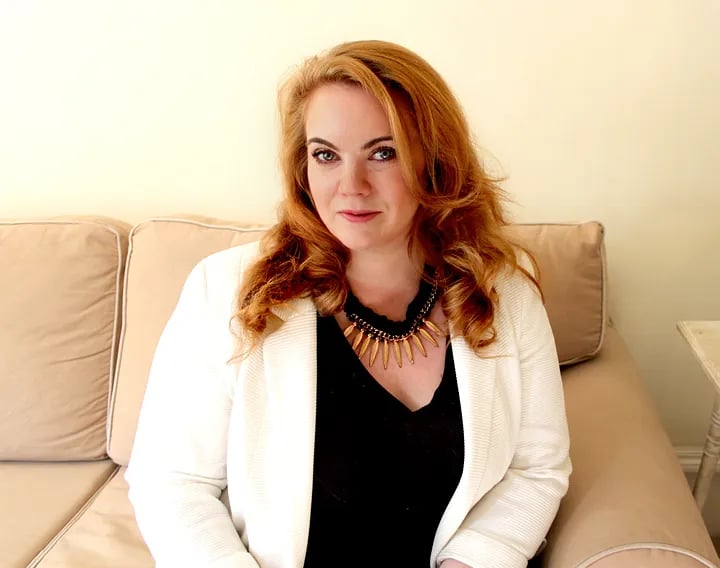Harriet Minter, journalist and coach
In our regular series, people high up the job ladder remember when they were still standing on the first rung

Hi, Harriet! Who are you and what do you do?
I’m Harriet Minter. I’m a journalist and consultants specialist writing mainly about the future of work and diversity in the workplace. I’m also a trainer, facilitator and coach and I work with organisations to help them embed the practices I write about.
What was your #MyFirstMcJob?
Working as a waitress at the Lemon Tree Café, age 15, in this little town called Tenterden in Kent.
How did you get that job?
There was a hierarchy in the town as to where you could work. Everyone had to start at the Lemon Tree Cafe, which was the worst place because the pay was the worst: £2.50 an hour. The general rule was that if you could work there for six months, you could work anywhere. They were always advertising, because people quit as soon as they possibly could. I went in with my CV, did a trial shift, and passed. The main criteria was that you had to get through without dropping anything or a customer complaining about you. If you could do that, you were in.
What did you have to do?
It was classic waitressing. So serving the lovely clients whilst making sure the angry chefs didn’t scream at you for whatever it was they were angry about that day. They also had a little B&B above the shop, so the job soon became waitress / chambermaid. I was always in trouble because I was incredibly slow at changing beds.
How long did you work there for?
About a year and a half. I went to an all girls school where they taught typing. I rang up a temping agency and got a job as a receptionist / typist for an electronics company who paid an almighty £7.50 an hour and which was much nicer because they didn’t shout at you.
What’s the funniest thing that happened?
The worst thing was that was one of the lampshades had broken in the B&B, and I was sent to the homeware store up the road to get a replacement fitting. The fitting I bought back cost 50p and was silver but the lamp was bronze. The owner took one look, said: “You’ve wasted my money, how dare you!” and threw it across the room at me.
What skills did you learn that you still use today?
Anyone who works in hospitality learns how to work with people — often unhappy people — which is a key life skill. As we were a little café in a small town, we’d get lots of elderly people who just wanted to have someone to chat to over a cup of coffee. It was also the physically the hardest job I have ever done. I have been eternally grateful that I’ve never gone back to waitressing since.
Are you still in contact with the people you used to work with?
No. But I wonder about them all the time!
Why is alumni important?
It gives you a network. I’m not a natural networker; I don’t like doing it. I can’t go into a room and just make a pile of friends in five minutes. But when you’ve worked with people for a while, you trust them and have a deeper connection, ready for when everything is going wrong, your boss is screaming at you and all your clients hate you! It’s incredibly bonding to keep in touch with those people as it reminds you how far you’ve come and what you have achieved.
What would happen if you went back and did a shift at the café today?
Oh my God, I’d die! I’m definitely not fit enough for that today!
If you could go back in time and give yourself one bit of advice, what would you say?
First of all I would say to the woman who insisted she’d ordered the poached salmon: “No, you ordered the smoked salmon!” I’d say: “The chef definitely does fancy you. You should definitely snog him.” And I would say: “You are going to go on to much bigger and better things, but it won’t ever feel as exciting because nothing feels as exciting as the first time you earn your own money.”

